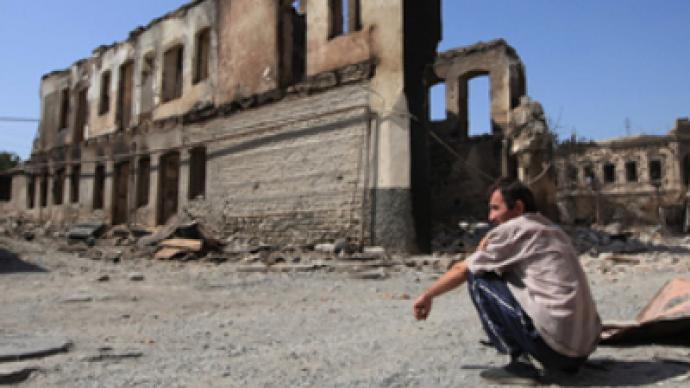Russia opens new criminal case against Georgia

Russia has charged Georgia with genocide and the mass murders of Russian citizens in South Ossetia during the 2008 military conflict, while new criminal charges are pending.
The Investigative Committee of Russia’s Prosecutor’s Office says it has obtained new evidence that proves Georgia’s guilt in yet more crimes in the course of the August 2008 conflict and has initiated a new court case.
"A criminal case has been opened… on crimes described in Criminal Code articles dealing with the use of banned warfare means and methods, the use of mercenaries, and attack on individuals and institutions that fall under international protection," says Vladimir Markin, a spokesman for the Investigative Committee.
Markin said the Investigative Committee has also collected evidence of premeditated murders, the abduction of civilians, and the use of “unsubstantiated violence in relation to prisoners of war and illegally detained civilians.”
Georgia’s alleged use of cluster bombs, as well 500-kilogram bombs against civilians in South Ossetia were also mentioned. These weapons have been banned by international conventions.
Russian investigators say, they have evidence that the Georgian military waged attacks on Russian peacekeepers and institutions, which by law are under international protection due to their status.
“The meticulous work carried out by investigative agencies has uncovered and documented numerous violations of international humanitarian law, as well as universally recognized human rights and freedoms, by the Georgian military in relation to South Ossetian civilians and Russian peacekeepers,” Markin continued.
Furthermore, the investigation has proven the participation of mercenaries from the Ukrainian nationalistic organization UNA-UNSO working on the side of Georgia.
“The mercenaries were recruited, financed, and provided with other material support by Georgian Interior Ministry officials," Markin said.
International Investigation
Meanwhile, Georgia is planning to sue Russia in international courts in an attempt to collect $40 billion dollars as compensation for damages that Georgia alleges it has sustained from Russia since 1990 on the territories of South Ossetia and Abkhazia.
At the same time, Georgian politicians admit this is a political move that aims at getting the international community blame Russia for the conflict. Indeed, immediately following the 5-day conflict, on August 12, 2008, Georgia submitted a petition to the UN's International Court in The Hague to initiate hearings against Russia.
Russia objected to the charges, citing the groundlessness of Georgia’s allegations and saying that the International Court does not have the jurisdiction to examine Georgia’s suit.
Meanwhile, in September last year, an independent international fact-finding mission backed by the EU issued a report stating that Georgia was the aggressor in the conflict and started the war in South Ossetia and accused Georgia of violating international laws by using force.
Russia has also asked the International Criminal Court in The Hague to investigate this matter further and to punish Georgia. Meanwhile, Tbilisi says it welcomes the ICC’s decision to investigate the 2008 military conflict, saying it is willing to provide all necessary materials required for the court.
Earlier, the head of the Russian Investigations Committee, Aleksander Bastrykin, criticized the Russian Foreign Ministry of insufficient legal action against the Georgian leadership and military during the conflict.
"From my point of view, our Foreign Ministry is not active enough in this sphere," Bastrykin said in November while answering questions from the members of the Federation Council Committee on Legal and Judicial issues.
He said that only seven requests regarding “the criminal actions of the Georgian military” were filed at the European Court of Human Rights, which he believed was insufficient.
“With the materials of our criminal case only, we should not be defendants, but plaintiffs and take a more active stance,” concluded Bastrykin.
The Russian Investigative Committee states that 162 civilians and 67 Russian soldiers were killed and 255 people wounded during the five-day war in South Ossetia in August 2008. More than 33,000 South Ossetians were forced to leave their homes as a result of the conflict.
Olga Masalkova, RT












